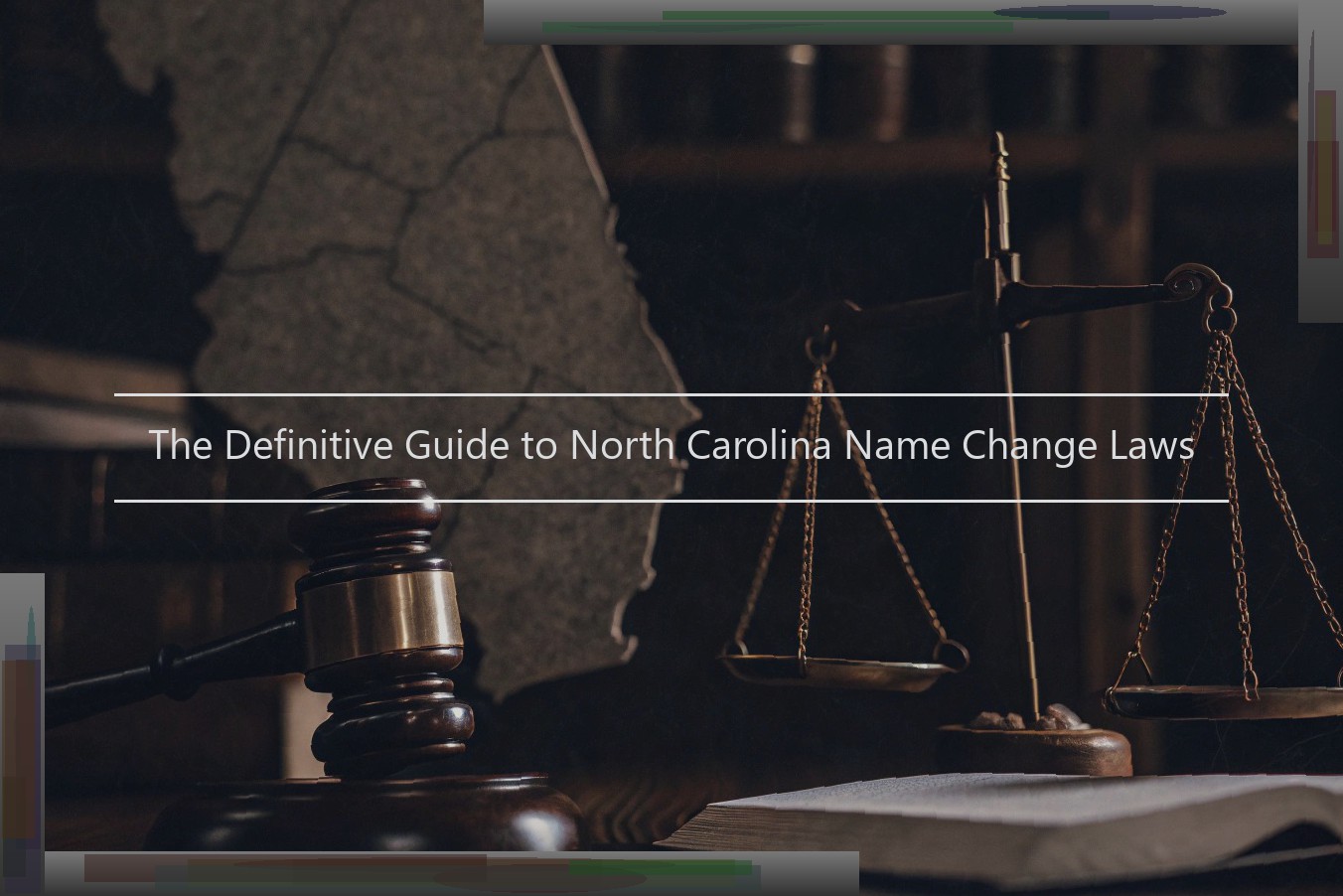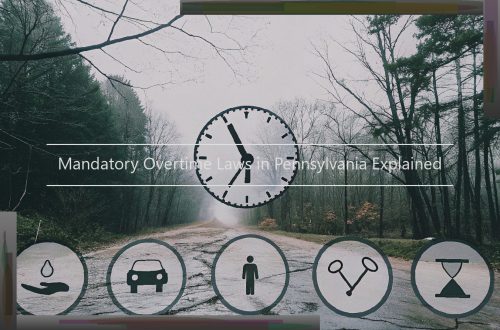The Definitive Guide to North Carolina Name Change Laws
The Law of Name Changes in North Carolina
Aside from the personal motivations for wanting to change your name, there are legal formalities that need to be considered and observed. North Carolina has laws governing the change of name for adults and minors.
In North Carolina, a request for a name change is filed with the Clerk of Courts in the county where the petitioner resides. There is no statutory or Rule of Civil Procedure that deals with a name change action; instead North Carolina common law controls the procedure. Campbell v. Allen, 166 N.C. 421, 82 S.E. 1103 (1914). In other words, North Carolina courts have established over the years how a name change action should be conducted.
As part of the name change process, North Carolina law regarding the local name change procedure requires that the Clerk’s office give notice of the name change action to local law enforcement agencies . In Wake County, for example, a notice is posted on the Wake County Sheriff’s Office website for thirty (30) days beginning on the first working day of the month following the filing of the name change petition. After this period, the Department of Motor Vehicles, Social Security Administration, and other agencies should process a person’s name change without issue as long as long as it is legally valid.
The North Carolina law that authorizes name changes, however, is limited to adults who file a listing of their names in the newspaper. G.S. 101-7 defines the procedures for publication of the name change petition. North Carolina’s Laws Governing Name Changes Stick to those of Us Residing in North Carolina.
The process is very similar in South Carolina, however, and we can help you if you are a resident of South Carolina.

Who Can Get a Name Change?
In the State of North Carolina, there are a few basic requirements that an individual seeking legal name change must satisfy before the process can begin. All individuals must be at least 18 years of age. As a practical matter, parents, guardians or custodians may begin the process on behalf of minor children and petition the court to change the name of those minor children. There is also a residency requirement for the area where the individual wishes to file. Generally, you should be a resident of the county for at least six months before filing your petition in that county. If you are completing a name change on behalf of a minor child you may petition in the county that the district court has jurisdiction over. If a minor child is not the basis for the name change petition, the adult requesting the name change must file the petition in their county of residence.
How to Change Your Name in North Carolina
In North Carolina, changing your name legally involves filing a petition with the court and publishing notice of your desired name change. You may request either an adult name change or a minor name change. For an adult name change, you do not need the permission of your spouse to file the petition. However, for a minor name change, you must have the permission of the custodial parent or the other parent if you are the custodial parent.
The petition begins with a caption setting out the facts for the court. Specifically, you must identify yourself, whether you are changing your name in relation to a divorce, whether you are filing the petition on behalf of a minor and the name you are requesting to use. You must also attach a parent affidavit, which may have the contents of the petition therein. The affidavit must restate the contents of the petition, be signed under oath and notarized by a notary public.
You and your spouse must publish notice of your intended name change in the newspaper. The notice must be run once per week for at least two consecutive weeks and must include the date, time and courthouse. In most cases, the clerk of court will provide you with the newspaper in which to publish your notice. The second publication must be ten days before the next hearing. The court will conduct a hearing and a judge will issue a name change order.
After you and your spouse publish notice of the intended name change, the clerk of court will set a hearing date. If you are seeking a divorce, the divorce action will already be set for the appropriate hearing by the family law judge. Generally, however, the first count i.e. the clerk of court will set the hearing date approximately thirty days after you file the petition and affidavit and needs at least ten days to publish the notice of the hearing and proposed name change in the newspaper before proceeding to the hearing.
The court will usually set a hearing date approximately 10 days after the petition is published in the newspaper for the second time, provided that there are no objections. If you have children, the hearing will take place on the same day as the hearing for your divorce case.
At the hearing, you will have the opportunity to request the name change in front of a judge. The court will request that you be sworn in before the name change petition is granted. If the court grants your name change petition, a judgment will be entered on the court’s docket changing your legal name. Some counties may issue a new birth certificate with your new name but others may require an additional filing.
Change of Name in North Carolina for a Minor
When a name change for a minor is involved, the request is taken very seriously by the North Carolina judicial system. Written consent from all living parents and/or guardians is required, and they must not be on record as being legally incompetent or insane. The written consent must be submitted to the Clerk of the Court, along with the Petition for a Name Change.
In cases where both parents are dead, or if one parent’s rights had previously been terminated by the court, the written consent is no longer required. While most courts will still require a hearing in the event that the non-custodial parent submitted a written objection, the submitting of the Petition alone is sometimes enough to facilitate the parent’s rights termination.
If a minor has an awaiting adoption case, the appropriate adoption agency can submit a Petition for both an adoption and a name change to the court. In this situation, no written request for a name change is necessary.
If a minor was born out of wedlock, the mother’s written consent must be submitted regardless of the living situation of the biological father. If the mother and father are living together, then both will be required to provide written consent for the name change. In the situation where a biological father has received legal custody of a child based on the child’s birth out of wedlock, written consent from the father is mandatory. The same rule applies for the father if the child was adopted out of wedlock by an individual or individuals with whom the father got married.
In all other scenarios, the court will decide what is in the best interests of the minor.
A Guide to Post Name Change Documents
After a name change is granted, several legal documents and records need to be fully updated to reflect the name change. Primarily, this includes the following:
- Social Security card
- Driver’s license or DMV-issued identification cards
- Passports (at times there are new fees)
- Birth certificate
- Bank accounts (savings accounts, checking accounts, line of credit, business accounts, etc.)
- Medicare cards (for most elderly and disabled citizens)
- Voter registration (as soon as possible, one must apply to vote under the new name)
Typically, all of these documents can be updated within a few months after the final name change has been granted by the clerk of court . This is especially true for items like your driver’s license and bank accounts, which are updated on a routine basis anyway, so you do not need to rush out immediately to start updating these accounts as soon as you receive your final order of name change. As for your Social Security card, the process is also pretty simple: Upload the forms provided to you by the clerk of court or print and fill out the forms you receive from your attorney, then send the forms and other supporting documentation via mail or in-person.
Mistakes You Can Make & How to Avoid Them
For all the freedom we enjoy in North Carolina, there are some when it comes to changing our names. While North Carolina law allows any person over 18 to change their name, there are conditions under which a name change is denied.
Criminal Convictions
If you have been convicted of a felony you must satisfy your sentence, including parole or probation. After you’ve satisfied your entire sentence, pay all criminal costs (including restitution), and you aren’t currently serving time at the Department of Corrections, you may file a name change petition. If you owe an arrest fee, that must be paid as well. For a list of fees assessed by the Department of Public Safety, click here.
Warrants/ Indictments for new crimes
If they have been issued a bench warrant or if they are facing an indictment for a crime that carries a possible jail term, their name change can be denied until the case is resolved. If you know you are being investigated for a crime by a U.S. agency, such as ICE or the Secret Service, you may wish to wait until the investigation is completed until filing your name change petition.
Proper jurisdiction
Naming conventions are the result of custom, usage, and local law and vary from place to place. Due to a variety of social issues, the courts may not recognize certain naming customs. When this happens, someone has been denied a name change or had one cancelled. In these cases, an individual’s best solutions are to persuade the court to accept their naming convention or use their original name.
Incorporation as a means of changing your name
If people are using incorporation as a means of changing their names, this is not a legally acceptable way to transfer a name. Before choosing a name, you should check the North Carolina Secretary of State Business Entity Search.
The Complete FAQ Guide to a Name Change in North Carolina
How long does it take to change your name in North Carolina?
The precise length of time can vary based on judicial discretion and court schedules, but in many cases submitting a petition and providing the necessary documentation is sufficient. However, once a name change is requested through a divorce, new birth certificate, citizenship process, or international adoption order, the required processing time could be several months.
What documentation is needed to legally change a name in North Carolina?
Valid forms of identification—such as an original or certified copy of a birth certificate or U.S. passport—must be provided in the petition to change your name. Petitioners may also need to supply copies of the court order pertaining to the legal name change, such as a divorce decree, marriage license or amended birth certificate.
Do I have to publish my intent to change my name in a local newspaper?
That can be at the discretion of the judge, although in many circumstances, the answer is yes. In some cases, the judge may waive the publication requirement if you can show that doing so could put your safety at risk in some manner.
Who has to agree to the name change?
In general, there are no residency requirements for many name changes, unless the name change is for a minor. When this is the case, consent from all parents or guardians is needed before the new name can be adopted. Without such consent , petitioners have to request a hearing.
Who do I tell to change my name after it has been officially changed?
Once the name change process is complete, you must update all of your records with companies, agencies, banks and public offices to ensure your name is updated on any legal documentation. If you have a passport, driver’s license or Social Security card and have changed your name, these items also need to be updated.
What are the legal reasons for a name change?
Along with a new marriage or divorce, common legal reasons for a name change are marriage dissolution or annulment; assuming your spouse’s name after a marriage or new partner’s name after a civil union; naming or renaming an adopted child; changing your children’s names after a divorce; and providing clarity to your name, assuming a nickname, saying goodbye to a former family name, or avoiding the use of suffixes such as "Sr." or "Jr."
What are the reasons I need court approval when changing my name?
In most circumstances, people don’t have to go through the Judicial Branch to legally change their names; they can do so by simply using the new name in everyday context. Where we see a need for court approval is in situations that involve a minor, use of a nicknames that could be deemed to be a public nuisance, to escape financial obligations or criminal prosecution, or to evade capture or identify arrest.




